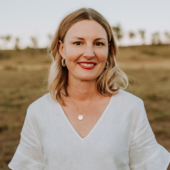Taking the road less travelled at Harvest Road
Owned by Andrew and Nicola Forrest, Harvest Road Group is part of Tattarang, one of Australia’s largest private investment groups. As a proud Western Australian end-to-end agrifood producer, the company is rewriting the script when it comes to animal welfare and environmental sustainability across its premium beef, aquaculture and horticulture businesses.
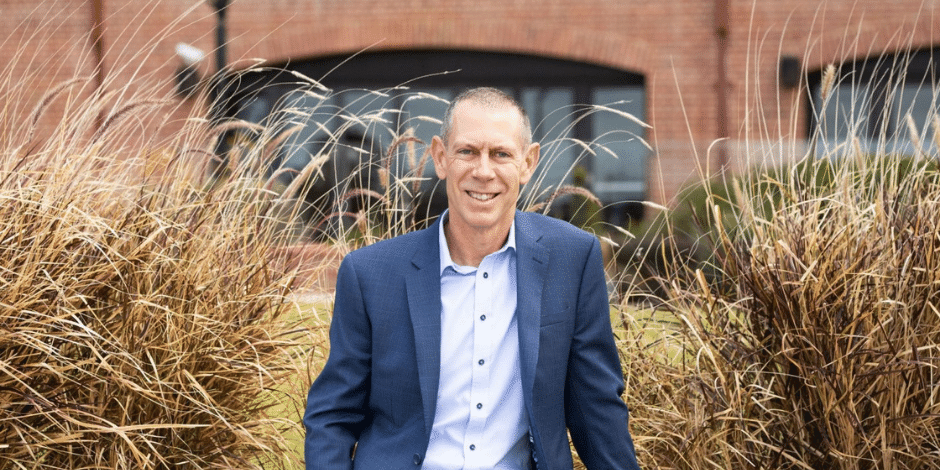 Paul Slaughter, CEO Harvest Road
Paul Slaughter, CEO Harvest Road
The man steering these ambitious plans is CEO Paul Slaughter, who says anything is possible when innovative technology and a respect for heritage combine.
Owned and run by Western Australia’s Forrest family, Harvest Road is openly and unashamedly a business not just steeped in values – but driven by them.
It’s one of the main factors that drew Paul Slaughter to the role of CEO after more than 25 years’ working with some of the biggest global companies in fast moving consumer goods (FMCG).
“At Harvest Road we run hard and we’re growing rapidly, but most importantly, we’re making a difference in people’s lives, in industry and on the environment,” said Paul.
“I’m also a passionate Perth boy – having grown up here – so fundamentally my heart lies in the West. It’s a wonderful place to bring up a family and I love everything about Western Australia and the food we produce here. I haven’t looked back since joining [Harvest Road] at the end of 2020.”
Harvest Road’s vision is clear, to deliver Australia’s best sustainable produce to the world through its three brands: Harvey Beef, Leeuwin Coast, and Ernest Green and Sons.
From paddock to plate and each step along the beef supply chain
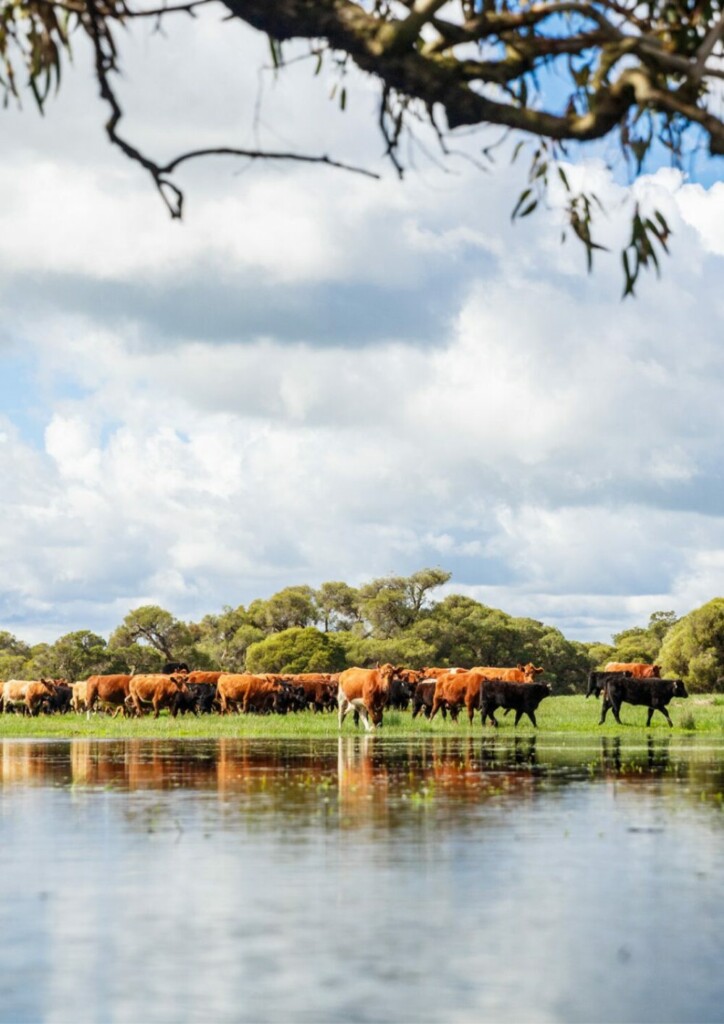
Harvest Road’s beef division, which includes the Harvey Beef brand, is Western Australia’s largest beef processor. A mainstay of production in Western Australia for more than 100 years, Harvey Beef was acquired by the company in 2013 and since then, significant investments have been made into Harvey Beef to build an integrated beef supply chain.
RELATED: The digital transformation of our food system
“There’s very few beef companies in Australia that are fully integrated, meaning that they handle everything from genetics and breeding through to feeding facilities, processing, boxing and packaging,” Paul explained.
“We’ve acquired just over three million hectares of prime pastoral and farming land and have doubled our footprint in the last twelve months, so we’re investing heavily into infrastructure, into land management, into biodiversity, into cattle stocking and genetics.”
RELATED: Low-cost green hydrogen technology for Australian farmers
The second part of the integrated beef supply chain is Harvest Road’s feeding facility at Koojan Downs which has been phasing up to full operations this year.
“We’re building the cattle numbers up gradually and currently the facility houses approximately 60,000 head per year in three groups of around a 20,000 standing,” said Paul.
“The feedlot was designed in conjunction with global animal welfare consultant Temple Grandin to accommodate cattle flow and enable effective cattle handling. It’s a first-class design, and was about a $72 million investment.”
A significant investment not just for the company, but for Western Australia as well.
“We’re not really a feeding facility state, so this new development has provided some opportunities for us and also some challenges in terms of operations, and how to work synergistically with industry,” said Paul.
“It also means we’ve needed to invest significantly in Harvey Beef to be able to process the additional uptake of cattle. We’re now on a journey to invest in 300,000 head per year. Obviously, these big investments mean increased investment in people, infrastructure, and all the things you’d normally expect to see out of a real growth business.”
Leeuwin Coast – investing in Western Australia’s people and infrastructure
While beef is big business, Harvest Road is also wading deep into the Western Australian waters of Albany with the purchase of two large aquaculture leases that form the base of its Leeuwin Coast seafood brand.
Producing two core products – Albany Rock Oysters, and Akoya, an innovative product developed from a Japanese pearl oyster that has taken Australia by storm.
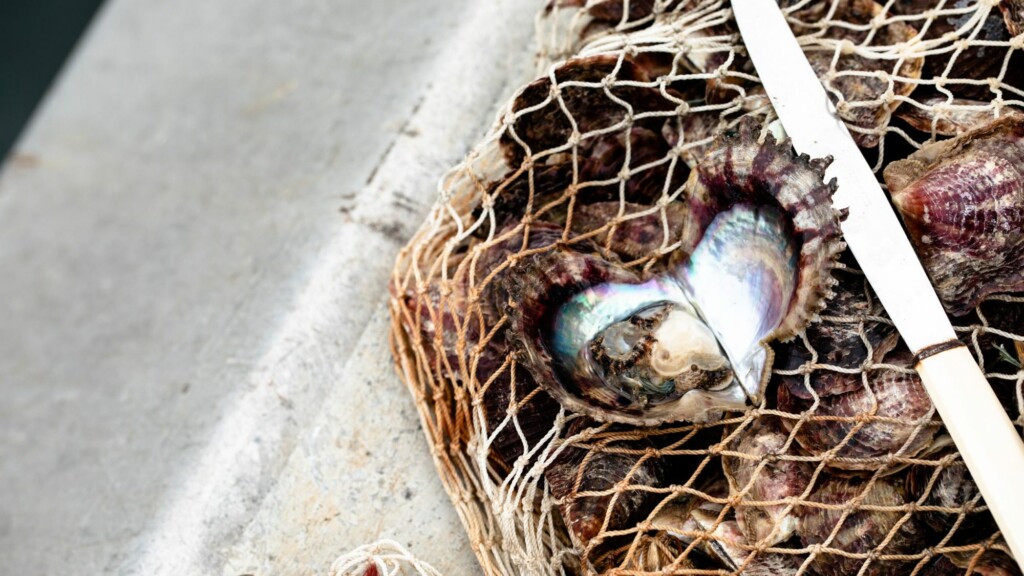
Leeuwin Coast Akoya, developed from a Japanese pearl oyster.
“Akoya have next to no carbon footprint, and a very small space footprint too,” said Paul.
Leeuwin Coast’s innovation runs deep, from the system developed to automatically pull the lines up and remove the Akoya, to the snap freeze process, packaging and distribution of the product to fine dining restaurants and premium food outlets.
RELATED: Western Australia’s famed marron crayfish, primed as the next global food sensation
“It is putting significant investment into Albany with the aquaculture leases, and the associated branding, people and systems behind that,” said Paul.
Further north near Carnarvon, the business is investing in horticulture and particularly in three crops, which are sweet potatoes, mangoes and agave.
RELATED: Queensland mango grower Ben Martin uses robots to power the next stage of growth
“Ultimately, we’re committed to honouring Western Australian produce across premium beef, aquaculture and horticulture products. We’re deep in that investment and infrastructure build stage so we can focus on getting the whole thing to work together.”
Stewards of the land and water
The ‘sustainable’ tagline is more than just a PR sell, too.
The Leeuwin Coast brand proudly boasts Australia’s first certified carbon neutral aquaculture products, and Harvest Road has recently completed a joint research initiative with Meat and Livestock Australia and the Department of Primary Industries and Regional Development to map carbon emissions across its entire supply chain to identify opportunities for reducing emissions with the vision of becoming carbon-neutral by 2030.
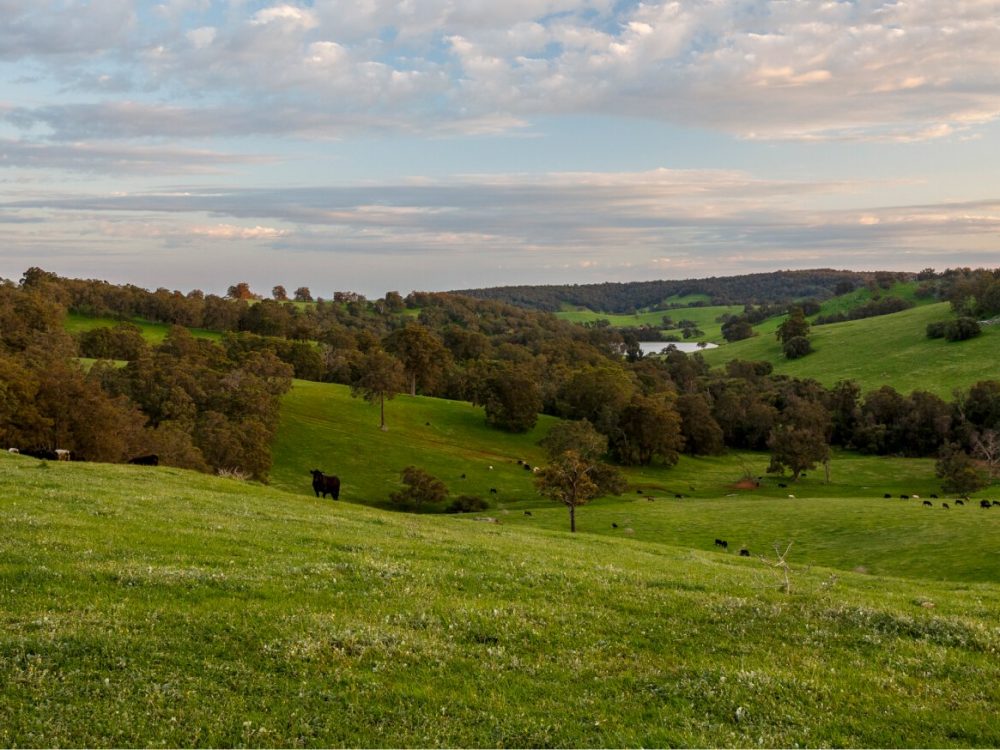
“This was essentially a carbon mapping exercise and originally started with scope one and two measuring our own emissions. We understand what those are now, and we’ve got steps in place to address those over time. Now we’ve moved into scope three to understand what our total supply chain emissions are,” said Paul.
Paul said Harvest Road’s myriad of touch points in the beef industry and the outcomes of the research program to date, means the business can work to develop and assist with other programs that may also help smaller to medium size producers to become carbon neutral too.
“We see ourselves as having an obligation to the industry,” he said.
“A lot of farmers and producers don’t have the resources at their disposal for these types of activities, if we can help them on their journey that’s a good thing.
“In another 10 years’ time I’d hope Harvest Road was operating completely carbon neutral and we’re continuing to explore our role as stewards of the land and how we build our leadership position globally.”
To find out more about Harvest Road visit www.harvestroad.com
Enjoyed this story? Want to learn more about the Asia Pacific region’s innovative agrifood tech ecosystem? Join us at evokeAG on 21-22 February 2023 in Adelaide, South Australia Tickets for evokeAG 2023 Down to Earth are now on sale here.
